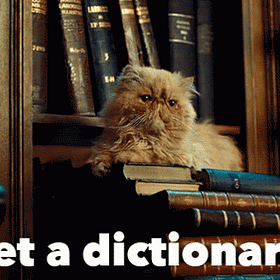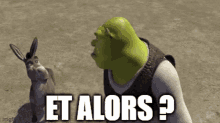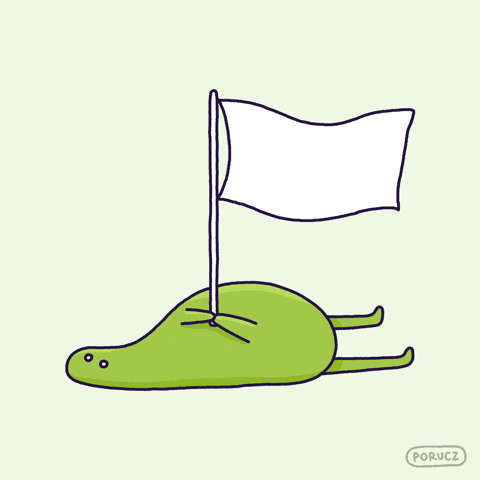Hello friends, how are you doing? As always, when I have a moment, I love to share what I have been learning. Do you want to know what I learned something new? Let’s go!
Just a heads up, I'm not a professional teacher, but rather another learner. The information I share might not be entirely accurate.
When you reas“alors que” what comes up in your head?
“Alors” means “so”… and “que” means “that”… Hence, “alors que” means “so that”!
Surprisingly, this is not the case! In fact, “so that” in french is “pour que”
#72 : What is "Pour que"
Hello friends, today I would like to share with you what I search for often in the dictionary but can't seem to memorize, use, or understand exactly what it means. It is 'pour que’.
For example, “Je travaille pour que je puisse payer mes vacances.” which means, “I work so that I can pay for my vacation.”
Another example, “Je parle lentement pour que tu comprenne.”, "I speak slowly so that you understand.”
Oui, et alors? In fact, there are so many usage in “alors que”, and it is normal to get confused. I think the most important thing is to get the language and expressions more familiar each day 😃
Definition of "alors que"
"Alors que" est souvent utilisé pour introduire une opposition, une comparaison, ou pour montrer un contraste entre deux idées.
"Alors que" is often used to introduce an opposition, a comparison, or to show a contrast between two ideas.
Woah😨 already from its definition, “alors que”…
introduire une opposition (introduce an opposition)
introduire une comparaison (introduce a comparison)
montrer un contraste entre deux idées (show a contrast between two ideas)
How can an expression can have such different meanings?
If you're like me and often confused, what always helps are examples. 😉 Instead of memorizing each meaning and trying to apply it in sentences, how about trying the reverse? Try translating sentences as you think they should be and then check back!
Exemples
Contraste dans le temps
Je suis parti à 18h, alors que lui est parti à 19h.
1️⃣ In this sentence, try translating everything except 'alors que'. 'I left at 6 PM, _____ he left at 7 PM.' ➡ 2️⃣ Before seeing the answer, guess how you would translate this sentence. ➡ 3️⃣ Answer: 'I left at 6 PM, whereas he left at 7 PM.' ➡ ❗ Lastly, try making your own sentence with the same meaning of 'alors que.'
💕My sentence : Je commence à travailler à 10h, alors qu’elle commence à 14h. (I start working at 10 AM, whereas she starts at 2 PM.)
❓ But why is there ‘lui’ instead of ‘il’ ?
Both "il" and "lui," the sentence is still correct grammatically, but "lui" adds emphasis, while "il" is more neutral.
"Je suis parti à 18h, alors qu’il est parti à 19h." (Neutral) vs "Je suis parti à 18h, alors que lui est parti à 19h." (Stronger emphasis on the contrast)
Opposition d'idées ou d'états
Elle aime le chocolat, alors que moi, je préfère les bonbons.
1️⃣ In this sentence, try translating everything except 'alors que'. 'He likes chocolate, _____ I prefer candy.' ➡ 2️⃣ Before seeing the answer, guess how you would translate this sentence. ➡ 3️⃣ Answer: 'He likes chocolate, whereas I prefer candy.' ➡ ❗ Lastly, try making your own sentence with the same meaning of 'alors que.'
💕My sentence : Il aime les films d'horreur, alors que moi, je les déteste. (He likes horror movies, whereas I hate them.)
💁 Don’t be scared making your own sentence. It could be simply start from changing its verb!
Contraste entre des faits
Il travaille dur pour réussir, alors que son frère se contente de faire le minimum."
1️⃣ In this sentence, try translating everything except 'alors que'. 'He works hard to succeed, _____ his brother is content with doing the minimum.' ➡ 2️⃣ Before seeing the answer, guess how you would translate this sentence. ➡ 3️⃣ Answer: 'He works hard to succeed, whereas his brother is content with doing the minimum.' ➡ ❗ Lastly, try making your own sentence with the same meaning of 'alors que.'
💕My sentence : Elle fait de la gym tous les matins, alors que je me contente de faire le minimum d’exercice. (She exercises every morning, whereas I just do the minimum amount of exercise.)
🌸 Ah ha! Are you getting the hang of 'alors que' now, hey?
Disparité dans les actions
Je me suis levé tôt ce matin, alors que mes amis ont dormi jusqu'à midi.
1️⃣ In this sentence, try translating everything except 'alors que'. 'I got up early this morning, _____ my friends slept until noon.' ➡ 2️⃣ Before seeing the answer, guess how you would translate this sentence. ➡ 3️⃣ Answer: 'I got up early this morning, whereas my friends slept until noon.' ➡ ❗ Lastly, try making your own sentence with the same meaning of 'alors que.'
💕My sentence : J’arrive au travail tôt à 8h, alors que mes collègues commencent à 10h. (I arrive at work early at 8 AM, whereas my colleagues start at 10 AM.)
🐜 Ah, so it means 'whereas.' in English. Why did you not tell us at first? It could have been way easier for you too to explain, no?
Yes, that would be easier for me to explain. However, I have many friends who learned words by translating them rigidly. As a result, when they spoke each time, they would translate word by word, which slowed their progress. I want to emphasize learning expressions and words in a way that they stick as French, not just as English translated into French. If you knoz what I mean ?
Contexte d'opposition dans une situation
Elle était calme, alors que tout le monde autour d'elle paniquait.
1️⃣ In this sentence, try translating everything except 'alors que'. 'She was calm, _____ everyone around her was panicking.' ➡ 2️⃣ Before seeing the answer, guess how you would translate this sentence. ➡ 3️⃣ Answer: 'She was calm, whereas everyone around her was panicking.' ➡ ❗ Lastly, try making your own sentence with the same meaning of 'alors que.'
💕My sentence : J'étais tout excité par les soldes, alors que mon copain n'aimait pas du tout ce qui concerne le commercial. (I was really excited about the sales, whereas my boyfriend didn’t like anything related to commercial things at all.)
The expression "alors que" in French, which indicates opposition or contrast, can be translated in different ways into English depending on the context.
Wow did you manage reading all this and make your own sentences? Woah good on you! Pour améliorer mon français, j'ai fini de lire cet article, alors que j'étais très occupé. (To improve my French, I finished reading this article, whereas I was very busy.) Bravo !








